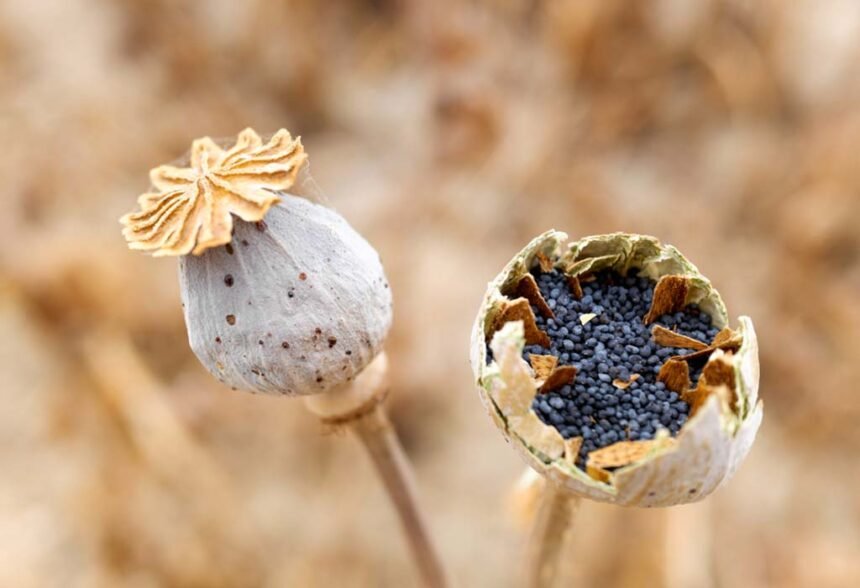Poppy seeds are small, edible seeds that are often used as a culinary ingredient or a spice. They are derived from the opium poppy plant (Papaver somniferum), which is also the source of opium, heroin, morphine, and codeine. These drugs are known as opiates or narcotics, and they have psychoactive and pain-relieving effects. But do poppy seeds contain narcotics, and can they affect your health or drug test results? Here is what you need to know.
Poppy seeds and opiates
The answer is yes, poppy seeds do contain narcotics, but only in trace amounts. The seeds themselves do not produce opiates, but they can be contaminated with opiate residues during the harvesting and processing of the opium poppy plant. The opium poppy plant produces a milky sap that contains opiate compounds, such as morphine and codeine. The sap is collected by making incisions on the seed pods of the plant, and then dried to form opium. The seeds are separated from the pods and cleaned, but some of the sap may remain on the seeds or in the cracks and crevices of the pods. Therefore, the seeds may contain small amounts of opiates, depending on the quality and origin of the seeds1.
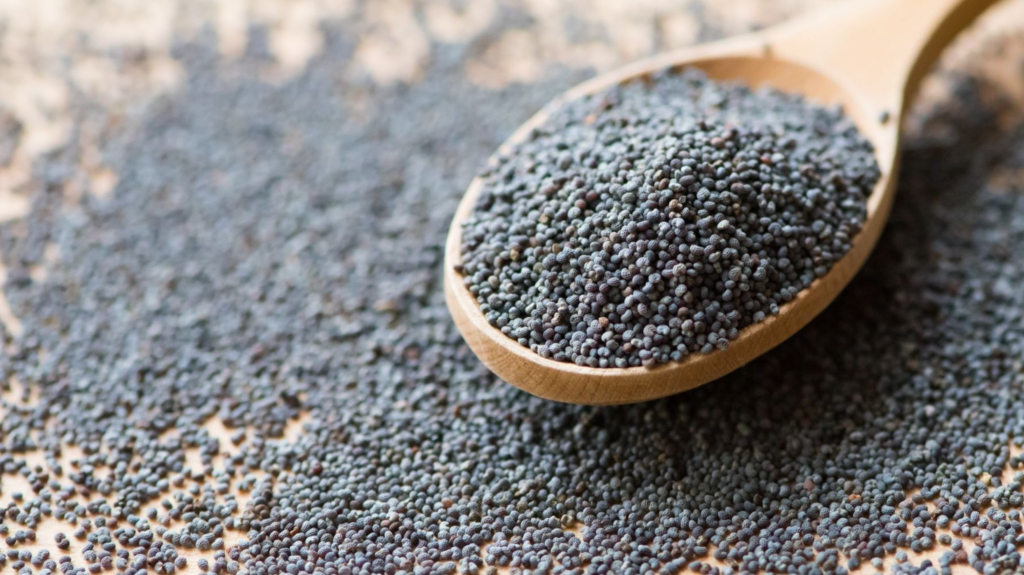
The amount of opiates in poppy seeds varies widely, but it is usually very low. According to a study published in the Journal of Analytical Toxicology, commercially available poppy seeds contain between 0.5 and 10 micrograms of morphine per gram of seeds2. To put this in perspective, a typical dose of medically prescribed morphine contains between 5,000 and 30,000 micrograms. This means that you would need to eat between 500 and 60,000 grams of poppy seeds (equivalent to 1 to 130 pounds) in one sitting to get the same amount of morphine as a medical dose. This is highly unlikely and impractical for most people.
Also read : “Kirlian Photography And The Quest For The Soul: Unraveling The Mysteries”
Poppy seeds and drug tests
However, even though the amount of opiates in poppy seeds is very low, it may still be enough to cause a positive result on a drug test. Drug tests are designed to detect the presence of certain substances in the body, such as opiates, marijuana, cocaine, and amphetamines. The tests measure the concentration of these substances or their metabolites (breakdown products) in the urine, blood, saliva, or hair. Different tests have different thresholds or cutoff levels, which are the minimum concentrations of the substances that trigger a positive result. If the concentration of the substance in the sample is above the cutoff level, the test is positive; if it is below the cutoff level, the test is negative3.
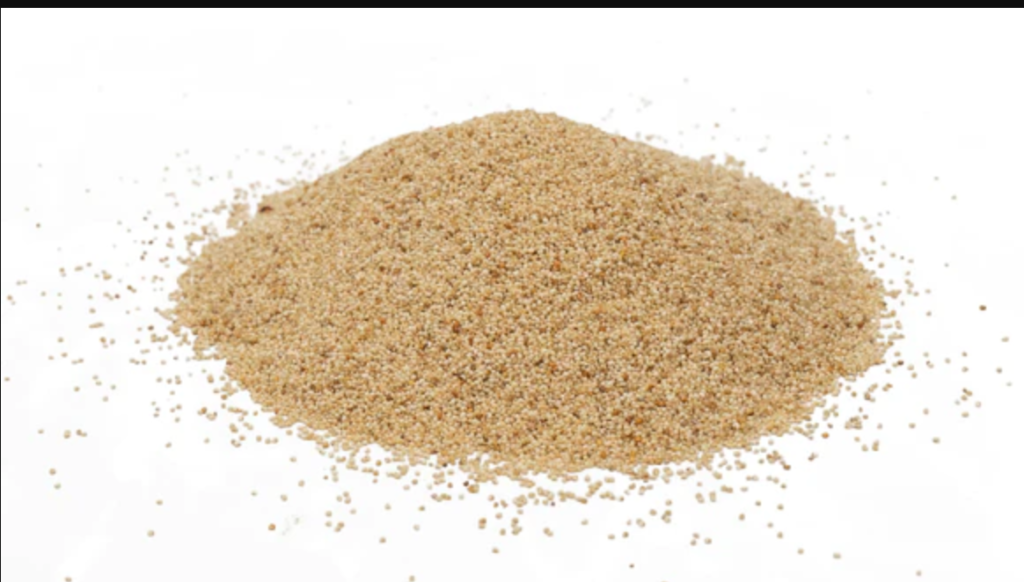
The problem is that the opiates in poppy seeds can be absorbed into the bloodstream and excreted in the urine, where they can be detected by drug tests. The amount and duration of opiate detection depends on several factors, such as the type and amount of poppy seeds consumed, the type and sensitivity of the drug test, the time and frequency of consumption, and the individual’s metabolism and body weight. Some studies have shown that eating a single poppy seed bagel or muffin can cause a positive result for opiates up to 24 hours after consumption4. Other studies have shown that eating larger or repeated amounts of poppy seeds can cause a positive result for up to 48 hours or longer.
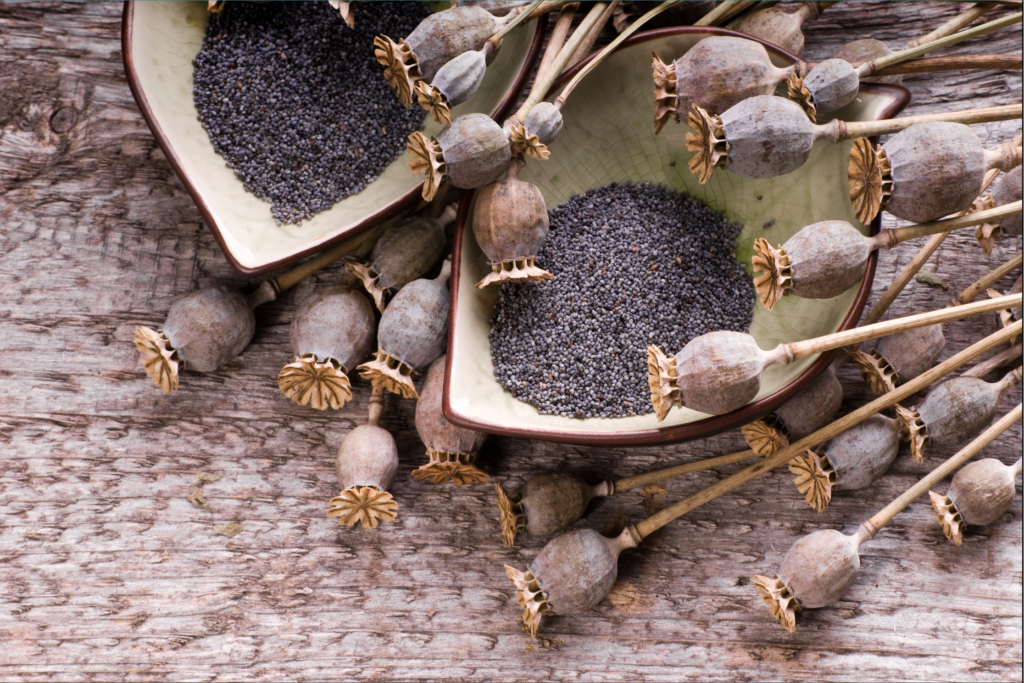
The issue of poppy seeds and drug tests has been recognized by many government agencies and organizations, such as the US Federal Bureau of Prisons, the US Department of Defense, the World Anti-Doping Agency, and the International Olympic Committee. These agencies have either advised their employees or athletes to avoid eating poppy seeds before drug tests, or raised their cutoff levels for opiates to reduce the risk of false positives. For example, the US Department of Health and Human Services increased its cutoff level for opiates in workplace testing from 0.3 to 2 micrograms per milliliter in 1998. However, some drug tests may still use lower cutoff levels, which can increase the chance of positive results from poppy seeds.
Poppy seeds and health effects
Eating poppy seeds does not have any significant health effects, as the amount of opiates in poppy seeds is too low to cause any psychoactive or pain-relieving effects. You will not get high or addicted from eating poppy seeds, nor will you experience any withdrawal symptoms if you stop eating them. However, eating poppy seeds may have some minor side effects, such as nausea, vomiting, constipation, or allergic reactions, especially if you eat large or contaminated amounts of poppy seeds.
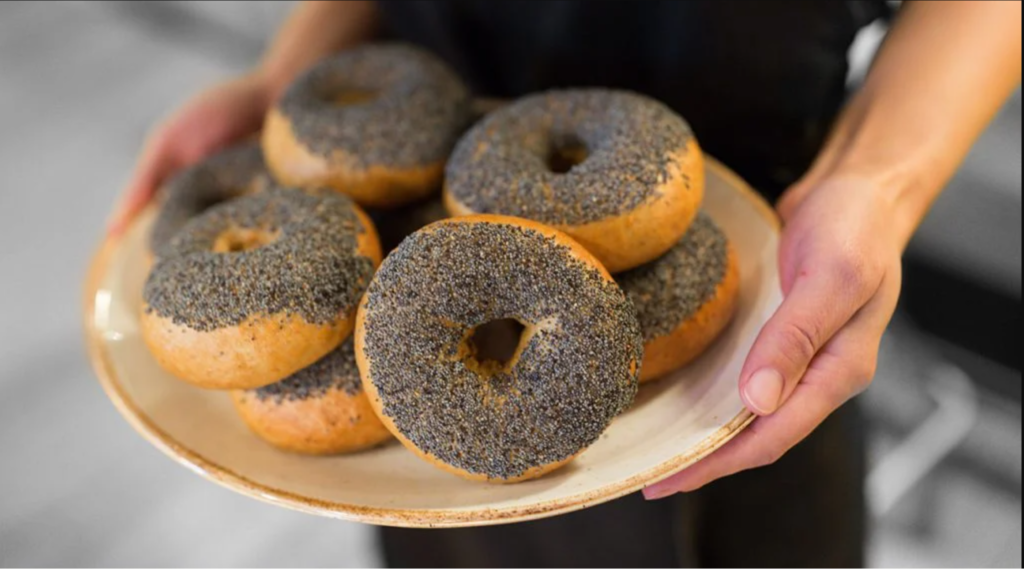
Poppy seeds also have some nutritional benefits, as they are rich in protein, fiber, calcium, iron, magnesium, and other minerals and vitamins. They also contain healthy fats, such as omega-3 and omega-6 fatty acids, which can lower cholesterol and inflammation. Poppy seeds can also add flavor, texture, and color to various dishes, such as breads, cakes, salads, and sauces.
Conclusion
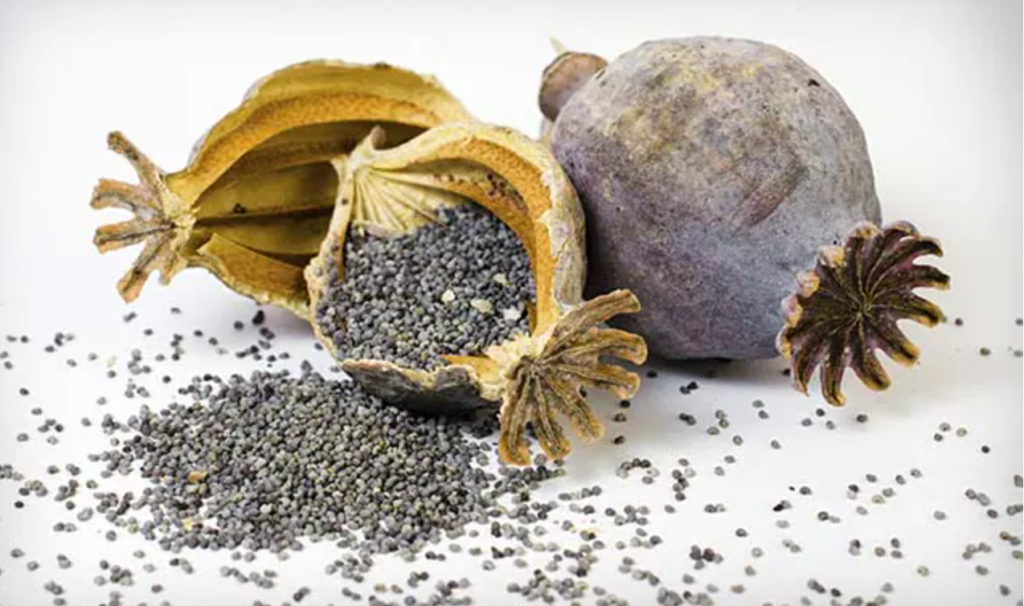
Poppy seeds do contain narcotics, but only in trace amounts. The seeds are contaminated with opiate residues from the opium poppy plant, which is the source of opium, heroin, morphine, and codeine. The amount of opiates in poppy seeds is very low, and it does not have any significant health effects. However, it may still be enough to cause a positive result on a drug test, depending on the type and amount of poppy seeds consumed, the type and sensitivity of the drug test, and the individual’s metabolism and body weight. Therefore, it is advisable to avoid eating poppy seeds before a drug test, or to inform the tester about your poppy seed consumption. Poppy seeds also have some nutritional benefits, as they are rich in protein, fiber, calcium, iron, magnesium, and other minerals and vitamins. They also add flavor, texture, and color to various dishes.
Also read : From Ashes To Brilliance: Transforming Your Beloved Cat Into A Memorial Diamond







